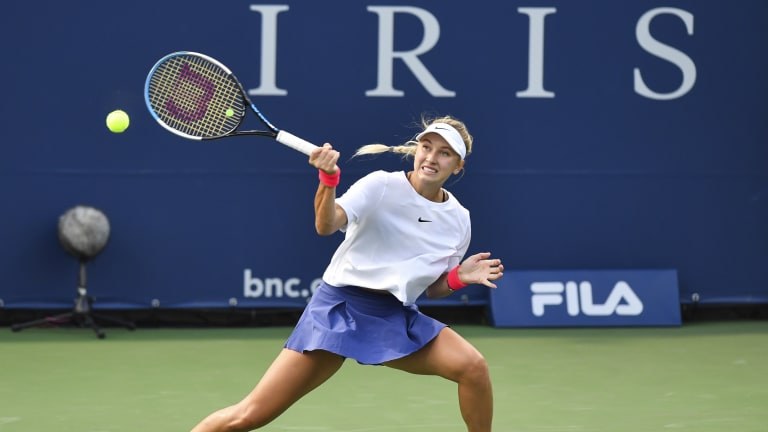Tennis.com Interview
Anastasia Potapova manages mid-season burnout, coaching switch ahead of Gauff rematch in Montréal
By Aug 10, 2021Tennis.com Interview
Sebastian Korda chasing match-day butterflies in 2026 after pair of stop-and-go seasons
By Jan 29, 2026Tennis.com Interview
Clara Tauson weathers illness, “boom boom” tennis to advance at Australian Open
By Jan 22, 2026Tennis.com Interview
Elina Svitolina finds strength in stepping back, talks burnout recovery at Australian Open
By Jan 21, 2026Tennis.com Interview
Karolina Pliskova navigates uncertain future after injury odyssey, Australian Open comeback
By Jan 20, 2026Tennis.com Interview
Eliot Spizzirri achieved something “amazing” last year. How much further can he go?
By Jan 16, 2026Tennis.com Interview
Dino Prizmic is ready to make another Melbourne mark, eyes Novak Djokovic reunion
By Jan 13, 2026Tennis.com Interview
Nick Kyrgios brings the show, and new perspective, to Madison Square Garden
By Dec 08, 2025Tennis.com Interview
After longest off-season ever, Tommy Paul talks injury comeback, wedding plans at MSG
By Dec 08, 2025Tennis.com Interview
Following in family footsteps, Elli Mandlik clinches Australian Open return in wild card play-off
By Nov 25, 2025Anastasia Potapova manages mid-season burnout, coaching switch ahead of Gauff rematch in Montréal
The young Russian recently hired Olympic captain Igor Andreev and aims to channel his positive message into summer hard-court success.
Published Aug 10, 2021
Advertising
Advertising
Advertising
Advertising

Potapova came through a tough qualifying section that included former No. 10 Kristina Mladenovic to reach the second round of Montréal's main draw.
© 2021 Getty Images